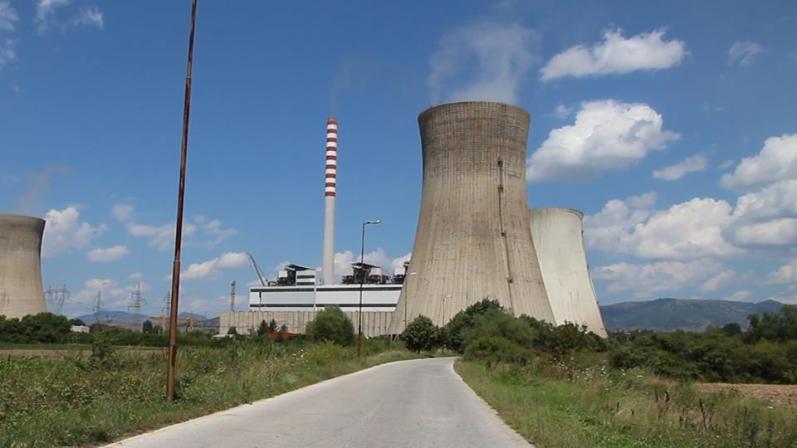Despite the ambitions for energy transition and decarbonization, the current energy crisis take us steps back in relying on fossil fuels, which in the next 10 years seems to be our primary resource for electricity production. The green scenario is a strategic commitment that we need to achieve, and the road to achieving that commitment will be difficult and needless to say with numerous obstacles. The energy crisis should be an incentive for decision-makers to start seriously planning investments in the energy sector, including investments in the heat supply, given that many households use both firewood and electric energy for heating purposes.
On the other hand, the green scenario in our country proved to be too ambitious, in addition to that an important pillar of the sustainability of the energy system – the energy security was neglected. Given that our production is traditionally based on lignite, we have not done anything in the past in the area of construction of new facilities not only in the field of renewable sources, but we have not used natural gas as a transitional fuel for long-term decarbonization. Unfortunately, years of neglect and mismanagement of energy have inevitably led to this situation. Currently the “house is on fire” and a few semi-solutions are being made day-to-day, but the crisis is deepening. Yes, there is an energy crisis all over Europe, but not everyone is so vulnerable. Even in the region, Slovenia has record profits in its state power plants, Bosnia and Herzegovina is also doing well … But Slovenia, although an EU member will not use coal in 2033, and has already prepared and published a Strategy for coal exit and restructuring of coal regions. Regarding energy, quality strategies must be prepared in a timely manner with realistic deadlines and budgets, at the same time they must be realized and non-political decisions must be made. Unprecedented populism is the effort to maintain minimal increases in electricity prices for households at all costs. The damage resulting from such decisions, we all bear as a burden again through the budget.
The green scenario is a strategic commitment that we need to achieve in the next 20 years and the energy crisis is only a small episode that we will overcome and end. But the key question is what will we do when we return to normal and will this be a “green signal” for more serious investment in the energy system in the long run? It is also important to emphasize that it is necessary to invest not only in renewable sources but also in cogeneration plants with natural gas that will contribute to the generation of electricity and solve the heat supply in larger cities such as Tetovo, Shtip etc. Of course, this requires long-term planning and can not happen in a short period of time, but we must start planning because in that way pollution caused by individual fireplaces will be reduced. State-owned energy companies must be managed professionally, not by party personnel. It has long been rumored that directors will be selected in a public competition according to the merit system, but to date none of that happens. Lately, almost none of the announced investments in renewable sources is an investment of state-owned power plants but of private investors – through the form of public-private partnership or strategic investor. It is little known in the public on what are the criteria for selection of investors based, which companies were shortlisted and whether the problems related to the capacities of the transmission network, balancing, etc. are thoroughly analyzed.
For many years we have had a problem with the realization of what is planned in the strategic documents for energy planning. If we look at the adopted Strategies for energy development, renewable sources, etc. so far, hardly anything has been realized by them. And not only in renewable sources, but also in revitalization and maintenance of existing base energy facilities. We have been witnessing for several months that the cold reserve TPP Negotino can not operate at full capacity (operates at 50%), and the third unit of REK Bitola is out of operation due to a transformer failure four months in a row (from November 5, 2021). At the beginning of last year, it was announced that Oslomej would be closed until the end of 2021, so that now it is kept “alive” with imported coal. All this is a result of the absence of planned work, not only in the long run, but also in the short run,.
Of course, if we invested in renewable sources, the impact on the energy supply would be smaller. Except investments in wind energy with modest installed capacity the state has not made any other investments so far, which means that we do not have state-owned solar power plants (the only state photovoltaic power plant in Oslomej of 10 MW, is already in the final stage but is being built for more than 3 years, which is too long for such small installed power). Therefore, in our opinion, it is necessary for the state to start investing in renewable energy sources, i.e wind farms, photovoltaic power plants, energy storage systems, etc., in order to convey the energy transition in a safe and secure manner within an acceptable time frame. At the same time, the capacities and professionalism of the competent institutions and state companies in the sector must be strengthened, the transparency and accountability must be increased, and the strategic documents must be carried through an inclusive process of all stakeholders.

